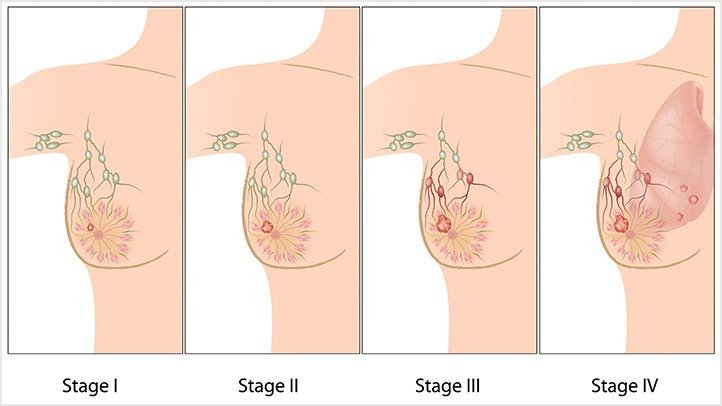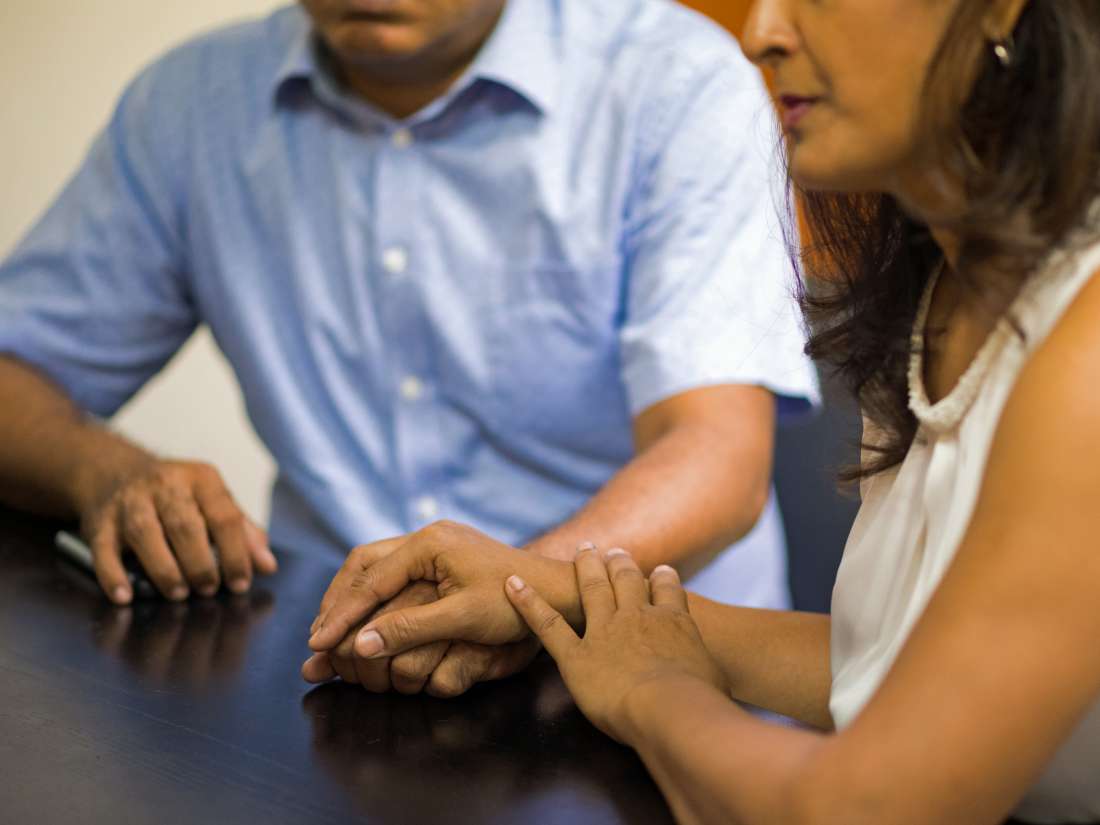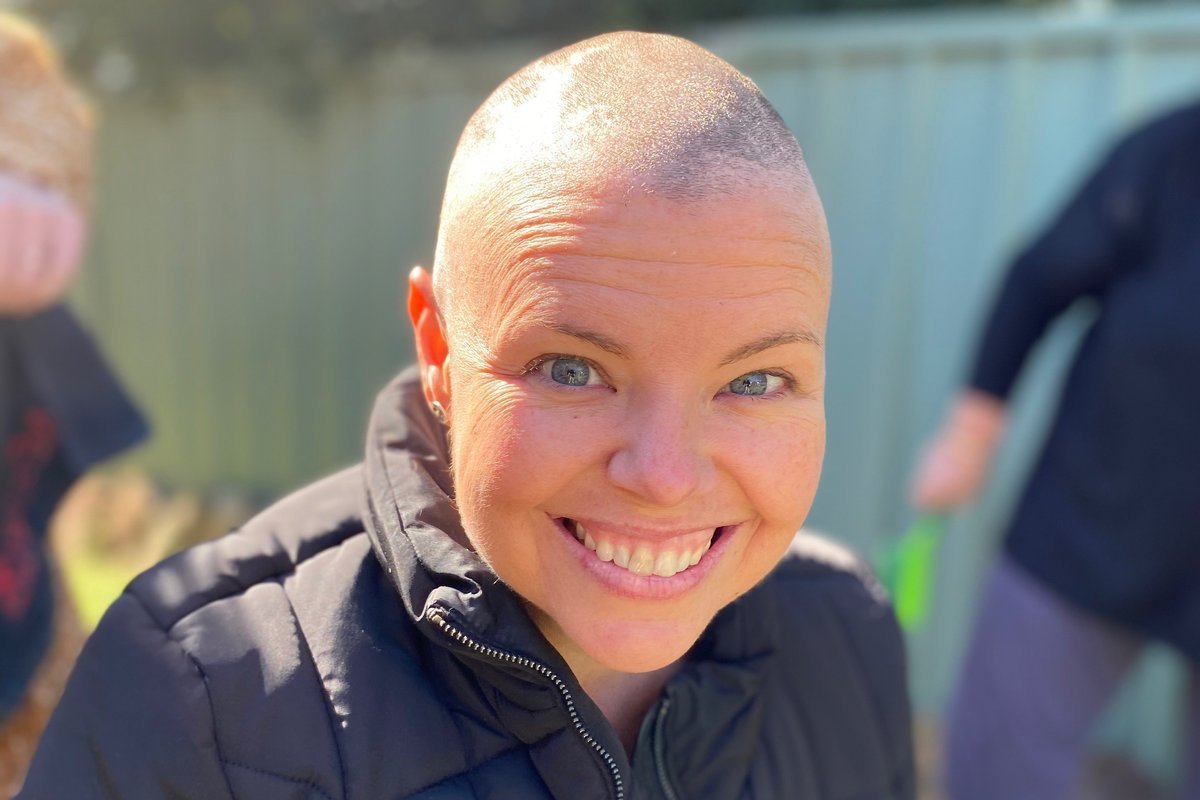Types Of Breast Lumps That Teens Can Get
The most common type of breast cancer found in teens is secretory adenocarcinoma. This is generally a slow growing, nonaggressive cancer.
Though theres little chance of this type of cancer spreading to other parts of the body, spread to local lymph nodes has been noted in a few cases.
Most breast lumps in teenage girls are fibroadenomas, which are noncancerous. An overgrowth of connective tissue in the breast causes fibroadenomas.
The lump is usually hard and rubbery, and you can move it around with your fingers. Fibroadenomas account for 91 percent of all solid breast masses in girls younger than 19 years old.
Other less common breast lumps in teens include cysts, which are noncancerous fluid-filled sacs.
Banging or injuring breast tissue, possibly during a fall or while playing sports, can also cause lumps.
If you feel anything unusual in your breast, see your doctor. They will ask:
- about your familys medical history
- when you discovered the lump
- if theres nipple discharge
- if the lump hurts
If anything looks or feels suspicious, your doctor will have you undergo an ultrasound. This test uses sound waves to see into your breasts. It can help determine whether a lump is solid, which is an indication of cancer.
If its fluid-filled, that will most likely indicate a cyst. Your doctor may also insert a fine needle into the lump to draw out tissue and test it for cancer.
What Does A Breast Lump Feel Like
Breast tissue in and of itself can feel somewhat lumpy and sponge-like, so it can be hard to know if what you’re feeling is an actual lump or just normal breast tissue.
“A breast lump will feel like a distinct mass that’s noticeably more solid than the rest of your breast tissue. Lumps can range in size from the size of a pea to larger than a golf ball and may or may not be movable,” says Dr. Joshi. “On the other hand, normal breast tissue will feel like consistent fibrous mesh throughout your breast.”
Breast lumps are typically painless, but occasionally a woman may experience pain with a lump.
How To Check Your Breasts
Theres no special way to check your breasts and you do not need any training.
Checking your breasts is as easy as TLC:
- Touch your breasts: can you feel anything new or unusual?
- Look for changes: does anything look different to you?
- Check any new or unusual changes with a GP
Everyone will have their own way of touching and looking for changes.
Get used to checking regularly and be aware of anything thats new or different for you.
Check your whole breast area, including up to your collarbone and armpits.
Read Also: Invasive Ductal Carcinoma Survival Rate Stage 1
Should I Get The Covid Vaccine
Many experts recommend that, in general, people with cancer should get a COVID-19 vaccine. But though COVID-19 vaccines seem to be quite safe for most people with cancer, they may be less effective, especially if your immune system is weakened by your disease or treatments. There have not yet been studies to prove this because the first studies have been on people with normal immune systems. But scientists know that, in general, vaccines are often less effective in people with weaker immune systems.
Certain cancers, like leukemias and lymphomas, for example, can lead to a weakened immune system. And some cancer treatments weaken immune response too, like:
- Chemotherapy
- Stem cell or bone marrow transplant
- Immunotherapy
Keep in mind that the very thing that makes the vaccine less effective also puts you at higher risk for serious disease from COVID-19. Thatâs why many experts suggest you get the vaccine even if it may be less effective. Some protection, they say, is better than none at all. But even with the vaccine, if you have a weakened immune system, you may need to take extra precautions like masking, social distancing, and avoiding crowds, even when general recommendations loosen.
Booster shots
The CDC now suggests a third dose of Pfizer and Moderna vaccines for people with âmoderately to severelyâ weakened immune systems, at least 28 days after the second dose. This applies if you:
Swollen lymph nodes
Safety of vaccines
I Have Breast Cancer Am I Going To Die

According to several doctors, this is a common question women ask immediately after being diagnosed.
“Breast cancer is not a death sentence,” Dr. Deepa Halaharvi, a board-certified general surgeon specializing in breast surgery at OhioHealth in Columbus, told TODAY via email. “Most people do really well and 5-year survival for all stages of breast cancer is 91 percent. We really need to be catching this at an early stage.”
Recommended Reading: Breast Cancer Stage 4 Survival Rates
Why Do Girls Need Them
Most teens don’t need breast exams. That’s because it’s rare for girls to have breast problems. Doctors usually just look at a girl’s breasts during her yearly gyn checkup to see where she is in her development. But if you have a family history of breast problems, your doctor or nurse might give you a breast exam.
What Can I Do To Avoid Getting Covid
Three vaccines have received emergency use authorization from the FDA, and one of those has received formal FDA approval for ages 16 and up. Data collection from clinical trials to test the effectiveness of COVID-19 vaccines are still ongoing. These trials will give scientists valuable information that can help patients and the general public in the long run. If you would like to participate in a COVID-19 vaccine clinical trial, ClinicalTrials.gov has a full listing of available studies.
The most important way to protect yourself is to be vaccinated against COVID-19. If you are not vaccinated, stay at home as much as possible and avoid areas where people gather. Follow guidance on travel restrictions issued by the CDC or the World Health Organization .
On December 8, 2021, the FDA issued an emergency use authorization to Evusheld, a monoclonal antibody treatment containing tixagevimab and cilgavimab, for the prevention of COVID-19. Evusheld is for use in children 12 and older and adults who are in a high-risk category. This authorization only applies to individuals who are not currently infected by the virus and have not been recently exposed to someone who tested positive. This drug is authorized for people who have:
- a moderate to severely compromised immune system, or
- a history of severe adverse reaction to a COVID-19 vaccine and who are unable to receive the complete vaccination series
In addition to washing your hands frequently, its important to:
Recommended Reading: Can Stage 2 Breast Cancer Be Cured
I Am A Brca Carrier What Do I Need To Know
“BRCA carriers are the highest risk group for breast cancer,” stated Schnabel. “BRCA1 carriers are at risk for breast and ovarian cancer their lifetime risk for breast cancer may be as high as 50 to 85 percent. BRCA2 carriers have a 40- to 60-percent lifetime risk for breast cancer, and are at an increased risk for ovarian cancer, and are also at increased risk for pancreatic cancer.”
According to Schnabel, BRCA carriers have three options to manage their breast cancer risk:
- intensive surveillance
- chemo-prevention
- risk-reducing surgery
You Have Sore On Your Breast That Won’t Heal
Whether it’s on your breast or on your nipple, a sore that won’t seem to heal is something to pay close attention to. “It may be a sign of Paget’s disease of the breast, a rare form of breast cancer,” says Alvarez. “This disease originates in the nipple. It’s not usually invasive and is most commonly diagnosed in patients in their 70s and 80s.” And for warning signals of other types of serious conditions, check out These Are All of the Cancer Warning Signs Hiding in Plain Sight.
You May Like: Invasive Ductal Carcinoma Grade 3 Treatment
What Are The Most Important Risk Factors For Breast Cancer
“A previous history of breast cancer, a significant family history of the disease , and specific conditions such as atypical hyperplasia and LCIS that are only detected when breast tissue is biopsied and examined microscopically,” explained Dr. Freya Schnabel, the director of breast surgery at Perlmutter Cancer Center at NYU Langone in New York City.
Schnabel noted that these risk factors have different magnitudes, and you should try to discuss with your doctor what makes a family history significant .
If I Have Cancer Now Or Had It In The Past Am I At Higher Risk Of Severe Illness From Covid
If you have cancer, you have a higher risk of severe illness from COVID-19. Other factors that increase the risk for severe illness from COVID-19 include having a weakened immune system , older age, and other medical conditions.
People with blood cancers may be at higher risk of prolonged infection and death from COVID-19 than people with solid tumors. That is because patients with blood cancers often have abnormal or depleted levels of immune cells that produce antibodies against viruses.
NCI is conducting a large study of people with cancer who have COVID-19 to learn more about the risk factors for COVID-19 and to help doctors better manage treatment for people with cancer and COVID-19.
Having a history of cancer may increase your risk of severe illness from COVID-19. People who have been treated for cancer in the past may want to discuss their concerns about COVID-19 with their doctors.
Also Check: End Stage Breast Cancer Life Expectancy
Efficacy Or Effectiveness What Do We Mean
Efficacy looks at whether an intervention works under optimal conditions . As an example, some of the COVID-19 vaccines are being tested in healthy participants or in people who are at higher risk of catching the virus because of their job, rather than being tested in the whole population.
Effectiveness looks at whether an intervention works in the real world. Vaccines will continue to be monitored after theyve been rolled out. The data collected helps experts understand how well they work in different groups of people and how long the protection given by the vaccine lasts.
The AstraZeneca Oxford vaccine have also been published, this time in The Lancet, with data suggesting that the vaccine is safe and offers protection against COVID-19. The results are a combination of 2 clinical trials in the UK and Brazil.When the interim trial results were released a few weeks ago, the vaccine had an efficacy between 62 and 90% depending on how doses were administered.
This paper shows that the vaccine offers protection against symptomatic COVID-19 when the 2 doses are administered with a 6-week gap between them. This could mean that this vaccine could take longer to roll out than others, with the Pfizer vaccine being given in 2 doses spaced as little as 3 weeks apart. However, it doesnt need to be stored at 70 degrees, meaning that it might be easier to deliver.
Your Areolas Have Gotten Thicker

You probably have a pretty good idea of how your areolas usually look and feel at this pointthey’ve been on your body for quite some time, after allso if you notice any thickening, it’s something to check out. This can also take place in the breast skin as well, says the American Cancer Society.
Don’t Miss: Stage 1 Breast Cancer Survival Rate
When To Start Breast Examinations
The American Cancer Society no longer recommends regular breast self-exams, since theres no evidence that they help reduce breast cancer deaths.
The organization still believes that being familiar with what is normal for your breasts will make it easier to recognize any changes that happen. A change in breast shape or texture, a new lump, or other significant change could signal a problem that should be checked out by your healthcare provider.
Most teens dont need breast exams at the doctor because they are not at high risk for cancer. But if you have a family history of breast problems, your doctor or nurse might give you a breast exam during your annual checkup.
Does Having Lymph Nodes Removed Affect Your Immune System
Having lymph nodes removed does not affect your bodys ability to fight infections.
Its common to have lymph nodes under the arm removed as part of surgery for breast cancer.
While having lymph node surgery increases the risk of a condition called lymphoedema, having nodes removed or having lymphoedema does not affect the overall ability of the immune system to fight infection.
Don’t Miss: Stage 3a Breast Cancer Treatment
What Do I Need To Know About Covid
There are several COVID-19 vaccines that are now in use in different parts of the world. In the United States, the 3 vaccines in use are made by Pfizer BioNTech, Moderna, and Janssen, manufactured by Johnson & Johnson. Globally, other vaccines are available or are in process of receiving Emergency Use Listing by the World Health Organization .
For COVID-19 vaccines that are 2-dose vaccines, both doses followed by a third dose are recommended to ensure full vaccination. The U.S. Food and Drug Administration authorized the use of mix and match booster doses on October 20, 2021, and this was approved by the U.S. Centers for Disease Control and Prevention . For example, someone who received the initial vaccination series with the Moderna vaccine could receive a booster dose of the Pfizer vaccine.
The available COVID-19 vaccines are effective against most variants of the virus, including the Delta variant. However, variants may still cause illness in some people who are vaccinated. The Omicron variant, for example, is more infectious than the Delta variant and may cause breakthrough infections in people who are vaccinated. Booster doses are important in helping lower the risk of a breakthrough infection.
If you have more questions about the vaccine, you can find answers at www.getvaccineanswers.org.
Does Hormone Therapy Affect The Immune System
Taking hormone therapy, including tamoxifen, letrozole, anastrozole, exemestane and goserelin, does not affect your immune system.
Hormone therapies do not increase your risk of getting coronavirus or of becoming seriously ill if you do get it.
Covid-19 vaccines are also safe and effective for people having hormone therapy.
Don’t Miss: Cancer Stage 3
August New Results On Covid
Further results looking at the immune response to COVID-19 vaccination in people with compromised immune systems, including some people with cancer, went live today at Preprints with The Lancet.
The trial recruited people with a variety of immune-mediated diseases, including 47 people with solid cancer and 18 people with blood cancer .
Early data from the trial show that 39% of those with blood cancer and 17% of those with solid cancers had a lower antibody responses after both doses of a COVID-19 vaccine, either Pfizer-BioNTech or AstraZeneca, compared to the lowest response detected in healthy individuals. The study didnt however look at how this response translates to COVID-19 protection.
Professor Charlie Swanton, Cancer Research UKs chief clinician said, This latest study broadly reflects the evidence weve seen so far and includes only a small number of cancer patients, with a limited number of cancer types. So its not clear if these results can be generalised or the level of protection given by the antibody response. Questions remain around whether a booster would provide more protection.
Overall, the majority of cancer patients had an immune response to the vaccine, even if levels of antibodies were lower in some cases than healthy controls, but the study didnt look at how this response translates to COVID-19 protection.
How Is Inflammatory Breast Cancer Treated
Inflammatory breast cancer is generally treated first with systemic chemotherapy to help shrink the tumor, then with surgery to remove the tumor, followed by radiation therapy. This approach to treatment is called a multimodal approach. Studies have found that women with inflammatory breast cancer who are treated with a multimodal approach have better responses to therapy and longer survival. Treatments used in a multimodal approach may include those described below.
You May Like: Average Life Expectancy Stage 4 Breast Cancer
Brain And Spinal Cord Tumors
There are many types of brain and spinal cord tumors, and the treatment and outlook for each is different. In children, most brain tumors start in the lower parts of the brain, such as the cerebellum or brain stem . Adults are more likely to develop tumors in upper parts of the brain. Spinal cord tumors are less common than brain tumors in all age groups.
Brain tumors can cause headaches, nausea, vomiting, blurred or double vision, dizziness, seizures, trouble walking or handling objects, and other symptoms.
Is Teen Breast Cancer Common

Its normal for your breasts to change as you enter your teenage years. Increases and decreases in female hormones, such as estrogen and progesterone, may make your breasts tender.
Hormones can also cause you to feel thickening, and even some lumps and bumps, in your breasts as your period comes and goes each month.
Could those lumps and bumps be cancer? Its not likely. Its almost unheard of for girls ages 14 years and younger to develop breast cancer.
The chances increase slightly as girls move through their teenage years, but breast cancer in this age group is still very rare.
Between 2012 and 2016, the incidence rate for female breast cancer in 15- to 19-year-olds in the United States was
- It seems fixed to the chest wall and doesnt move around.
- It ranges in size from about the size of a pea to several inches in diameter.
- It might be painful.
Nipple discharge and having the nipple invert inward are possible symptoms of breast cancer in adult women. However, theyre not very common in teens with cancer.
Read Also: Anne Hathaway Boob Job